- Home
- Rose Tremain
The American Lover Page 9
The American Lover Read online
Page 9
Juliette Gréco’s Black Dress
This is a true story about my friend Phoebe’s mum. Phoebe told me it during our lunch breaks at the beauty clinic where we both work. These breaks are stingy, so it took a few of them, and Phoebe sometimes said, ‘Oh God, I don’t know why I’m telling you all this, Karen,’ and I said, ‘I expect it’s because I’m a good listener, like I listen to all the clients’ stuff while I’m doing manicures and pedicures,’ and Phoebe said, ‘Yup, it could be that.’
Phoebe’s mum’s name was Julie. Her parents lived in an old brick cottage in Surrey, and in the 1950s they scrimped to send her to quite a posh school, near Epsom, where art was taught. Julie was so brilliant at art that the head teacher wrote to her parents and told them that when she was eighteen, they should send her to an art school in Paris, the Académie Something, where she knew the director. I don’t know how they afforded this, but they did. Before they let her go, her mother bought her a new tartan skirt and a pale green twinset from Marks & Spencer, and got her hair permed. Phoebe said that, at the time, Julie thought she looked excellent, wearing her twinset and with her dark hair in a demi-wave.
When she got to Paris, she was swept away by the beauty of things.
She walked around in a daze, making sketches of old lamp-posts and stone lintels. At the Académie, she learned to draw naked people and smoke Gauloises. No other girls there had perms or wore twinsets. They had long straight hair and wore matelot jerseys and tight, tapering trousers.
Julie packed away her twinset and stocked up on matelot jerseys from a cheap market stall in Les Halles. Then she went to a hairdresser and got the perm straightened and when that was done, the nice French hairdresser said to her, ‘Voilà. Now you look like Juliette Gréco.’
She found out that Juliette Gréco was a famous singer. But also a muse. Jean-Paul Sartre adored her. Jacques Prévert wrote songs for her. Men and women all over France fantasised about her. Handsome Monsieur Fabien at the Académie said she was the most seductive woman he’d ever laid eyes on.
Julie began buying her records. Her favourite song was ‘Les Feuilles Mortes’, which was about the way life separates you from people you love. She also studied photographs of Juliette, and she noticed that in every single one of these she was wearing a black dress. Then she read a newspaper interview in which Juliette said that she was adored by everyone in the world except one person and that one person was her mother. Famous as she was, her mother still didn’t love her or feel proud of her, so that was why she wore black – as a kind of mourning for her mother’s affection.
So then Julie began to think that her own mother didn’t love her either. She decided that any mother who insisted on perming her daughter’s hair had to have jealous feelings about her. She stopped writing letters home. She longed to be somebody’s muse. And one day she blew almost all her money on a beautiful black dress.
Phoebe then described how, when Julie put this dress on, she adored the sight of herself so much that she couldn’t bear to take it off. So she larded on some black eye make-up and went out into the street like that, and everybody in the street stared and stared at her, and she kept wondering, were these really stares of admiration, or was it just that it was winter and she was walking along in a cocktail dress and narrow little pumpy shoes?
During the Life Class at the Académie, Monsieur Fabien kept looking at her. At the end of the session, he invited her out to a café in St Germain des Près, where he put his suede blouson round her shoulders to stop her shivering in the winter cold. They drank rum and coke. A lot of people in the café gazed at them: at handsome Monsieur Fabien and Julie from Epsom in her Juliette Gréco dress.
He took her back to his studio. Now, she discovered that he wasn’t just a teacher of art, but a real artist, with an attic reeking of turpentine and lots of half-finished pictures of naked women standing around among scrunched-up rags on the paint-spattered floor. When he kissed her, she said: ‘Monsieur Fabien, I want to be your muse,’ and he said, ‘OK, ma belle. Fuck first. Muse later.’
Julie fell in love with Monsieur Fabien the moment he took her virginity away. She lay in bed with him, looking at her black dress hanging over a chair, and she told Phoebe that at that moment, the whole world became titchy and reduced itself to an attic and a slanty bit of Paris sky, and she thought, Right, this is where I’m going to stay for ever, and never see Surrey again.
I really liked Julie’s story up to here. The stories I have to listen to from the clients are never romantic like this; they’re actually quite dull, like nothing ever happens in rich women’s lives except buying furnishings and paying vet’s fees and worrying about Christmas. I was looking forward to the next instalment, but when it came, I felt gutted.
Phoebe said, ‘Well, you can guess how it ends, can’t you, Karen?’ and I said, ‘No, I don’t want to guess.’ And she said, ‘The dress got torn.’
‘And?’
‘He dumped her. She came home. She was miserable for a while. She couldn’t eat or make polite conversation. She played ‘Les Feuilles Mortes’ over and over on my grandparents’ radiogram. I guess she kept imagining Monsieur Fabien with other women, each one thinking she was going to be his muse. She put the torn black dress in a drawer and sometimes looked at it, or held it to her face to breathe in the old scent of turpentine.
‘Then my grandmother gave her a talking-to and told her she was being selfish and putting everybody through hell for the sake of some philandering French fool with a dirty floor. So she agreed to go to a local dance, where she met my father, Hugh. And that’s the end of it, really. They were married within six months and then she had me. It pretty much ends there.’
‘How d’you mean, it ends there?’ I said.
‘Well, it does,’ said Phoebe. ‘Nothing more has ever happened to her.’
Our lunch break was finishing and I had an Aromatherapy Massage to prepare for, so I put on my white uniform and tugged back my hair into its tortoiseshell clip and left Phoebe fishing around in her bag for a photograph of her father, Hugh, mowing the lawn of his semi off the Ashtead road.
My Aromatherapy client, Mrs Tyler, seemed nice. She told me a bit about her brilliant job in banking while I worked on her back, which was tanned and smooth, and I caught myself wondering how many lovers had stroked it or touched it with their lips. But I didn’t really feel like making polite conversation. All I said to her was, ‘Can I ask you something random? Do you by any chance know how much a Eurostar ticket to Paris costs?’
I was using lavender oil, which is astringent, like turps. Mrs Tyler turned her head sideways to breathe in the oil, and a mesh of her dark hair touched my arm.
‘I think it varies, Karen,’ she said. ‘I’m pretty sure it’s cheaper in the winter.’
The Housekeeper
Everybody believes that I am an invented person: Mrs Danvers. They say I’m a creation: ‘Miss du Maurier’s finest creation’, in the opinion of many. But I have my own story. I have a history and a soul. I’m a breathing woman.
I first met Miss du Maurier when she came to luncheon with my employer, Lord de Whithers, at Manderville Hall in the summer of 1936. Lord de Whithers married late and would never have expected to outlive his much younger wife, but she died of cancer in the winter of 1935, and since her death Lord de Whithers frequently gives way to those outbursts of ill-temper that afflict heartbroken men. Although these can be wounding, I feel great pity for him and do all that I can to keep Manderville Hall just as the late Lady de Whithers would have wished it to be kept.
Being the housekeeper, I would not normally (or not necessarily) be introduced to the luncheon guests, but Lord de Whithers sent for me on that summer’s day to ask me whether, after luncheon, I would be kind enough to take Miss du Maurier – whom he had met by chance at a garden fête – on a guided tour of the house.
‘Miss du Maurier is the authoress Daphne du Maurier,’ said Lord de Whithers, ‘and she seems to think that our beloved Manderville
Hall might inspire her to write what I think these days is called a “fiction”.’
Miss du Maurier was seated in a brocade-upholstered wing chair. She sat so deep in the chair, holding her small glass of sherry and not moving at all when I entered the room, that the vision I had of her was shadowy, as though only part of her sat in the wing chair, and the rest of her were somewhere else. And – for reasons that I could not fathom at the time – this strange insubstantiality of hers affected me with instantaneous strong feeling, as though I were the one being called upon to bring her to wholeness and to an engagement with the world.
I told Lord de Whithers that I would be delighted to conduct Miss du Maurier upon a tour of the house, but I did not look again at the authoress. I turned and made my way towards the drawing-room door and Lord de Whithers said: ‘Thank you so much, Mrs Danowski. I suggest you come back at half past two when I will go for my little rest. You can, of course, include the west wing in your tour, if you wish.’
I closed the drawing-room door quietly, but waited a moment outside it, to hear what Lord de Whithers might say about me. His views upon the world are narrow, and in recent times, the things he says are often uncharitable. He has been heard to disparage my name, even inferring some instability of my character attaching to my Jewish origins. But on this occasion he didn’t mention me. All he said to Miss du Maurier was: ‘Forgive me for not doing the tour myself, my dear. Since my wife died, I’ve become prone to melancholy in the afternoons.’
The other thing that people believe about me is that I’m an arsonist – possibly a murderer. For how many people (the butler, the other servants, asleep in their beds) died in the fire that burned down the house Miss du Maurier renamed Manderley? We do not know. The book ends without telling us. All we see are the terrible flames lighting up the sky and the ash blown by the salt wind from the sea. Yet it is strongly inferred that ‘Mrs Danvers’ (as I was named by the writer) set the fire. Mrs Danvers packed up all her possessions, such as they were, and then she began her jealous burning. As the fire took hold, she slipped away, walking down the azalea walk known as Happy Valley, and was never seen again.
Happy Valley . . .
Miss du Maurier took this name from something I said to her later that day, about the beauty of the azaleas – when they are in bloom and perfuming the air – in the Manderville Hall garden. I said to her: ‘When I walk here on a fine spring day, I find that I am completely happy, and I know that this happiness comes from believing – counter to all that I know – that nothing bad will come my way while I am in this place.’
She told me that she understood such a feeling very well, that there were places in the world that felt like sanctuaries. But then she stole these thoughts, just as she stole my life.
My poor life. I live in Padstow in a rented room, with a view of the sea. I earn a small living from a needle-work enterprise.
I have a heart full of memory. I go for walks in the cold of winter, wearing a fur coat that was a gift to me from Miss du Maurier. I hold the coat close around my body.
Manderville Hall, on the south coast of Cornwall, was very large. It had been in the de Whithers family for no less than eight generations, and it was a great sadness to Lord and Lady de Whithers that they had no heir to leave it to. When the time came for His Lordship to die, which might not be far off, the house was supposed to pass to his niece, Miss Adelaide Waverley.
‘I do not really like to think about this,’ he once said to me, as he and I were going through some of his late wife’s books and papers in the morning room. ‘Manderville Hall needs to be inhabited, as I and my wife inhabited it – with our whole beings. But Adelaide will not do this. She is a careless girl. She could let it all fall to ruin.’
It was not my place to make any comment upon this observation, but I did remember the one visit that Miss Adelaide Waverley had made to Manderville Hall. She brought her own horse in a horse box. She spent most of each day riding about the park. She left her riding clothes strewn about her room, all stinking of leather and sweat, for the maids to pick up. She possessed a screeching laugh, which I found displeasing. When she departed, she left no tips for any of the staff.
I came to the drawing room at half past two, as instructed.
Lord de Whithers had already gone to his room, leaving Miss du Maurier alone. She sat on one of the window seats, staring out at the lawns. Her pale hair was lit by the afternoon sun. She turned and smiled at me and I saw that her smile made her beautiful.
‘You must think me a wretch,’ she said.
‘A wretch, madam?’
‘To make you do the tour of the house when – I don’t know – you might prefer to be sleeping, on this warm afternoon, or making a trip to the village.’
‘Oh no,’ I said. ‘I almost never leave Manderville Hall. I think of it as my home. Even on my days off, I often stay here.’
‘Do you? Well, I can understand that. It is one of the loveliest places I’ve ever seen . . .’
‘Lord de Whithers is happy for me to walk in the woods, or on the private beach. There is an old summer-house down on the beach, which nobody uses any more. And I enjoy sitting in there and listening to the sea.’
‘Oh, do you?’ said Miss du Maurier, springing up off the window seat. ‘I love the sound of the sea, too. How it sighs and whispers. I’ve promised myself that before I get too old to want to do it any more, I’ll spend a whole night by the sea, lying on the sand and looking at the stars. Have you ever done that?’
‘No, madam, I haven’t. But I will admit that one night I fell asleep in the beach-house, and when I woke up, I didn’t know where in the world I was, but I knew that I was one of the . . . How can I put it without sounding pretentious? I felt that I was one of the blessed.’
‘One of the blessed?’
‘I mean, one of those who can occasionally – and without necessarily wishing to do this – see and feel things very intensely. As I imagine you, as an authoress, might also do.’
She stared at me closely when I said this. Her eyes were large and clever, like the eyes of one who can see into the past and into the future. But her smile had vanished and I had the miserable feeling that I had uttered something impertinent and inappropriate to my position as Lord de Whithers’ housekeeper. But then, her look softened and she said: ‘Sometimes, strong feeling lays ghastly traps for the soul. Don’t you think so? Anyway, let’s begin on our tour. Where are you going to take me first?’
She had already seen the library and the drawing room and the dining room and the morning room and the hall, with its fine minstrels’ gallery and I didn’t think that she necessarily wanted to visit the kitchen or the servants’ hall, so I decided to show her the west wing. In my opinion, this was the most beautiful bit of the house, decorated with exquisite taste by the late Lady de Whithers, but hardly inhabited since her death.
Even when she was alive, Lord and Lady de Whithers occupied opposite wings of the house – he in the east and she in the west – like the kings and queens of old who kept each to their own apartments within their palaces.
I led Miss du Maurier up the west staircase and along the wide, carpeted passage to Lady de Whithers’ bedroom. In summer, I instructed the maids to keep the curtains closed, so that sunlight would not fade the magnificent French upholstery of the four-poster bed. Thus, the large room seemed dark when we went into it and rather cold. As I stepped to the window, to draw the curtains, I saw Miss du Maurier shiver. She pulled her cashmere cardigan more tightly round her body, and once again I was affected by very strong feeling – this time by a desire to protect the authoress, as though some imminent harm was going to come her way.
I let in the sunlight and called her to the window. ‘Do come and look at this view, madam,’ I said. ‘The sweep of the bay is so beautiful from here.’
Miss du Maurier came and stood by me and we gazed out at the sea. She was still trembling and I put my hand gently on her arm.
‘Are you cold?’ I
asked. ‘I suppose it is always a little cool in this room.’
‘No, no,’ she said. ‘I’m fine. But there is something so extraordinary about this house – like no other house I’ve ever been to. It’s as if – and I know this is too, too foolish – I’ve seen it before in some wonderful dream. And in the dream, it didn’t belong to Lord de Whithers; it belonged to me.’
That was the first time that she used the word ‘belonged’.
I understand now, because of all that she appropriated, how important and how terrible was her use of this word. At the time, however, in Lady de Whithers’ bedroom, I made no comment upon it. She walked away from the window and sat down on the bed. She caressed the damask bedspread with her long, sensitive fingers.
‘I’m sorry that I never met Lady de Whithers,’ she said. ‘I feel that she must have been an exceptional woman.’
‘Well,’ I said, ‘she was very beautiful, until she became ill. She wore the most wonderful clothes, bought in Paris. Some of them are still in the wardrobes here. Would you like to see them?’
‘Oh,’ said Miss du Maurier, ‘well, I would. Writers are terrible, you know, for wanting to peek and pry into things. We never know where inspiration may lie . . .’
I opened one of the wardrobes, which contained a great quantity of winter coats, among them some furs, which, in the long, cold winters at Manderville Hall, had often made me sigh with envy. The only coats that I possessed at that time were made of thin wool or gabardine and I knew that fur alone lends impenetrable warmth to the human frame.
I took out a long mink coat and invited Miss du Maurier to stroke it. Then, I took it off its hanger and Miss du Maurier stood up and I put the coat gently round her shoulders.
‘Isn’t it lovely?’ I said. ‘You were cold a moment ago, madam, and now you’re not cold any more, are you?’

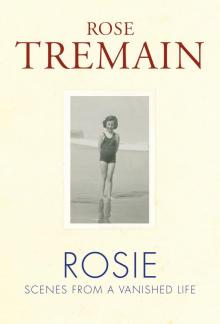 Rosie
Rosie The Garden of the Villa Mollini
The Garden of the Villa Mollini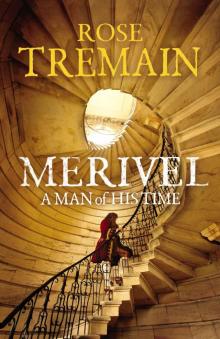 Merivel: A Man of His Time
Merivel: A Man of His Time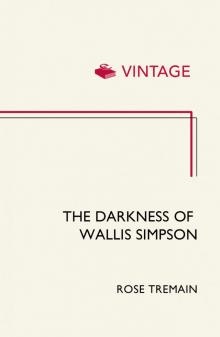 The Darkness of Wallis Simpson
The Darkness of Wallis Simpson Earth
Earth Sacred Country
Sacred Country The Swimming Pool Season
The Swimming Pool Season The Gustav Sonata
The Gustav Sonata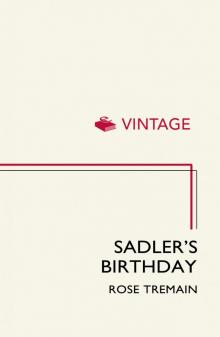 Sadler's Birthday
Sadler's Birthday The Cupboard
The Cupboard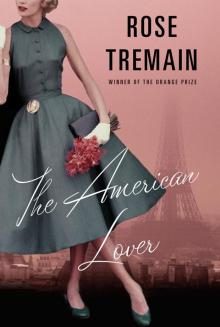 The American Lover
The American Lover Letter to Sister Benedicta
Letter to Sister Benedicta Evangelista's Fan
Evangelista's Fan Restoration
Restoration The Road Home
The Road Home The Colonel's Daughter
The Colonel's Daughter The Way I Found Her
The Way I Found Her Music & Silence
Music & Silence